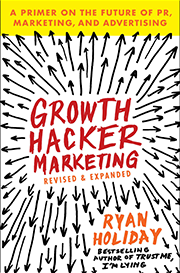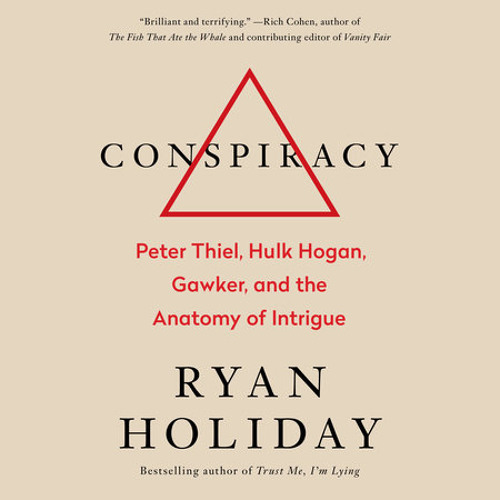
Gossip is never helpful, almost always hurtful, and if it’s on the internet, it’s permanent. Just because someone is “famous” doesn’t mean they deserve to be treated poorly. There will always be people who want to act maliciously toward those in the public eye.


If you’re looking for your next exciting read, no need to search for novels Conspiracy should be at the top of your list.ĥ/5 Highly Recommend Lessons Learned from Conspiracy: A True Story of Power, Sex, and a Billionaire's Secret Plot to Destroy a Media Empire by Ryan Holiday Holiday does an exquisite job of presenting just the facts, but in a way that reads like a thriller.

There’s no superfluous information and no unnecessary back story. This story is well-written, well-researched, and you can’t put it down. It’s a wild story fit for the fiction section, but it’s entirely true. However, his best book, and probably most underrated, is Conspiracy: A True Story of Power, Sex, and a Billionaire's Secret Plot to Destroy a Media Empire.Ĭonspiracy is the fascinatingly true story of how Peter Thiel teamed up with Hulk Hogan to take down the media website, Gawker. Holiday gets a lot of praise for his Stoic Trilogy: The Obstacle is the Way, Ego is the Enemy, and Stillness is the Key. I first saw him speak at a conference in Austin, TX, and was intrigued by his passion for “making old things new again.” He’s popularized Stoicism for the 21st Century and makes challenging concepts approachable and straightforward. To me it feels like you're missing that.I’ve been reading Ryan Holiday since 2018. So you think the person that's calling it out as possibly something people should be wary of or at least examine very closely because of all the possible unintended consequences (which is a point they both spend quite some time elaborating on) is the person that should be viewed negatively? It's not just that something was said, it's how it was said, why it was said, and the larger context. > And of course it’s not just a “thought experiment,”. I'm not sure why you refuse to consider it in this one exchange. The entire conversation is couched in this context. He's not actually saying he thinks peopls should go about it this way, he's raising the question of should we be okay with a tactic like this? The extremity of the argument is to make you think critically about it. His thoughts are that government should get out of education. He's floating it as a thought experiment to bring up the question of whether a tactic like this, for whatever goal, should be considered good or bad, given that it relies on secrecy.

but your characterization is far too generous for something radically awful that he’s floating as a “thought experiment.”


 0 kommentar(er)
0 kommentar(er)
